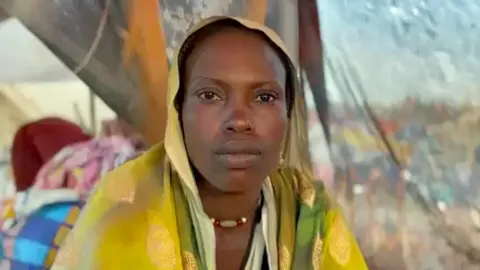Escalating Violence in Nigeria: Deadly Clashes Between Nomads and Farmers

Recent violent confrontations between nomadic herders and local farmers have surged alarmingly in Nigeria's central region, particularly in Benue and Plateau states. In a harrowing series of incidents, at least 17 individuals have lost their lives due to coordinated attacks allegedly carried out by nomadic cattle herders in Benue State.
The police spokesperson, Anene Sewuese Catherine, issued a statement on Friday detailing the grim events that unfolded. According to Catherine, a significant number of suspected militia invaded the Benue region overnight, instigating chaos and fear among the local population. This outbreak of violence is not an isolated event; it reflects a disturbing trend of escalating hostilities that have resulted in hundreds of deaths over recent years.
In response to the attacks, security forces were dispatched to the area. However, during the early hours of the day, as these forces attempted to repel the attackers, the assailants indiscriminately fired upon unsuspecting farmers. Tragically, five farmers were reported dead in the Ukum area of Benue State.
In a devastating twist of events, a second attack occurred nearly 70 kilometers away in the Logo area of Benue State. The police reported that a simultaneous assault took place in a nearby locality, where an additional 12 lives were claimed before law enforcement could arrive on the scene.
The intensity of the violence is underscored by the fact that these recent attacks followed closely on the heels of a previous incident in the Otukpo region of Benue State, where 11 individuals were killed just two days earlier. Moreover, the situation in the adjoining Plateau State remains dire, as more than 50 people were slain in a series of ambushes targeting villages less than a week ago.
Research conducted by SBM Intelligence reveals a staggering statistic: since 2019, clashes between nomadic cattle herders and agricultural communities in this region have resulted in over 500 fatalities and displaced approximately 2.2 million individuals from their homes. The conflict is often portrayed through an ethnoreligious lens, highlighting the tensions between Muslim Fulani herders and Christian farmers from the Berom and Irigwe ethnic groups. However, analysts suggest that deeper issues, such as climate change and the scarcity of pastoral land, are fundamentally driving these violent encounters, pushing farmers and herders into direct competition for diminishing resources.
This ongoing conflict not only poses a grave humanitarian crisis but also threatens to disrupt food supplies from north-central Nigeria, a region recognized as a crucial agricultural hub. As violence continues to escalate, the ramifications for local communities and the broader Nigerian economy could be profound.





























